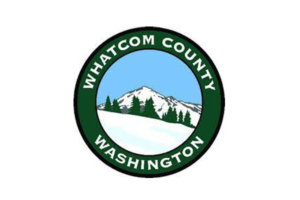We have had the opportunity to work with a great many businesses, nonprofits, and government entities that are making significant impacts within the good food industry. One of the biggest barriers we’ve witnessed in moving forward with an idea or scaling operations is the ability to secure funding. Even businesses with a revenue generating stream may not have the resources to allocate a portion of their budget for needed business development.
To help our clients and readers, we have created a funding guide that includes sources of grants, loans, and equity for businesses and programs promoting sustainable food and agriculture and local economies. The guide takes into account that an organization’s funding structure is unique to them: based on their location, years in operation, type of programming, to name a few. While not comprehensive, the guide can help determine your funding options–whether it be for conducting a feasibility study, designing and building a facility, or implementing community programs.
TYPES OF FUNDING
Government Grants
Government grants are a means to distribute federal funds towards ideas and projects that provide public services and stimulate the economy. Opportunities are sponsored through different federal agencies appropriated through bills passed by congress. Every opportunity has its own eligibility criteria; however, generally most entities (nonprofit, government, education, for-profit, small business) can apply if they are providing a public good or service. Because government grants are funded by tax dollars, they require stringent compliance and reporting measures for ensuring the money is spent according to federal guidelines. For a complete listing, visit Grants.gov. Following is an overview of opportunities relevant to many of our clients:
- USDA AMS: The Agricultural Marketing Service works to improve domestic and international opportunities for U.S. growers and producers. One of the most utilized AMS grants in the good food sector is the Farmers Market and Local Food Promotion Program. This grant is available to any entity (ie. for-profit and nonprofit) that supports local and regional food business enterprises that process, distribute, aggregate, or store locally or regionally produced food products and requires a 25% match (can be in-kind). Grants are available for the planning or implementing stage.
- USDA RD: The Rural Development Agency provides much-needed capital in rural areas, often in partnership with private-sector lenders and community-based organizations. A common program used by our clients is the Rural Business Enterprise Grant, designed to support the development or expansion of small and emerging private businesses in rural areas which will employ 50 or fewer new employees and has less than $1 million in gross revenue. Programmatic activities are separated into enterprise or opportunity type grant activities.
- EDA: The Economic Development Administration has opportunities that support construction or upgrade of public facilities, planning, technical assistance for economic development, and more. While local and regional food systems are not an explicit focus of any program, they can be supported through Planning and Local Technical Assistance programs that carry out the EDA’s mission by developing plans and studies designed to build capacity and guide the economic prosperity and resiliency of an area or region (feasibility studies and impact analyses fall within eligible activities covered).
Other government grant opportunities to consider are through local agriculture, economic, and health and human services departments at the state, county, and city level.
Private Grants
Corporate and foundation grants are funds made available through corporate or family trust funds that seek to provide a public good based on giving priorities agreed upon by the foundation’s board of trustees. Private grants are usually only available for nonprofits with a 501(c)(3) designation. If you do not meet this requirement, many foundations allow businesses/organizations to partner with a 501(c)(3) who will be the acting fiscal agent.
Our guide includes foundations with a national giving presence that are interested in healthy food initiatives and regional economic development. Note that some of the largest supporters for these types of projects are local/regional foundations that are invested in projects and initiatives that grow, preserve, and sustain their community. Foundation Directory Online is a great resource to research grants and learn about local foundations’ funding priorities and giving history. A paid subscription is required to access in-depth information; however, there are Funding Information Network Centers across the nation that provides the resource for free.
Loan Funds/Community Development Finance Institutes
Loans are typically available for building projects and purchasing large equipment. Our guide includes institutions that give loans with low or 0% interest rates for qualifying activities that provide a benefit to the community. Loan programs typically cover facilities and equipment expenses.
Community Development Financial Institution (CDFI) Certification is a designation given to specialized organizations, such as community development banks and credit unions, and non-regulated institutions like loan and venture capital funds, that provide financial services in low-income communities and to people who lack access to financing. Community Development Loan Funds (CDLFs) provide financing and development services to businesses organizations, including microenterprises and small businesses. Each year, the CDFI Fund (a federal program) awards institutions across the US, enabling them to provide affordable financial products and services to spark economic growth in under-resourced communities. Specifically, the Healthy Food Financing Initiative is offered for CDFIs that are interested in expanding their healthy food financing activities.
Equity
Equity provides an opportunity for a for-profit organization to raise capital by selling a portion of its stock to investors. There are a number of investment funds and organizations that are investing in social enterprises and sustainable food businesses. NVA recommends consulting with professional advisors to understand structuring, ownership rights, tax implications, and other matters if raising capital via an equity sale.
CHOOSING THE BEST OPTION
Finding financial support is a practice of patience and relationship building and is often composed of different sources. Many of our clients are generously supported by outside funders and financial institutions which has enabled them to undertake large-scale building projects and provide free community programs.
Grants are the best option for planning, expanding, or evaluating program opportunities as these activities are generally too speculative to be funded by by loans or equity financing. Grantmakers are open to supporting innovation and entrepreneurship and are interested in improving access to services and economic growth in under-resourced communities. When choosing a grant, determining the following will help you find potential grantmaking partners whose giving priorities and eligibility requirements are aligned with your needs:
- Activities that your project or program will undertake
- Current stage of your project or program (planning, scaling, ongoing)
- Location of your project or program and if it has special designations or has been identified as a priority area for granting agencies
- Target audience/beneficiaries and specific benefits that will result from your project or program’s activities
- Amount of funding needed and amount of matching funds available to you
Loans with a zero or below-market rate are the best option for building projects (even as partial funding) and purchasing equipment. Loans are most feasible for businesses that can provide collateral and are projected to generate positive cash flow.
Equity is often used in conjunction with loans – and some loans convert to equity – and is often sourced as growth capital to cover operating losses while a business scales.
For a bit more about matching sources of capital with the ways you intend to use it, read the “Sources and Uses” section of this 2015 blog post: 4 Keys to Persuasive Business Plans.
We offer this guide to inform you of funding opportunities at the different stages of starting and growing your food business. If you are interested in posting a funding opportunity in this guide, please fill out this form.
If you have questions about a specific grant or funder listed, please contact the funding agency referenced in the listing directly.
Image: Mintr / Shutterstock



